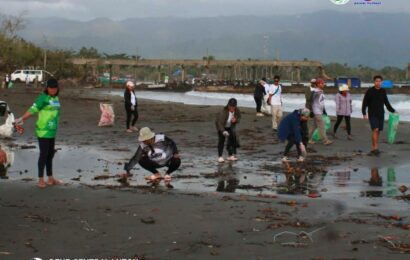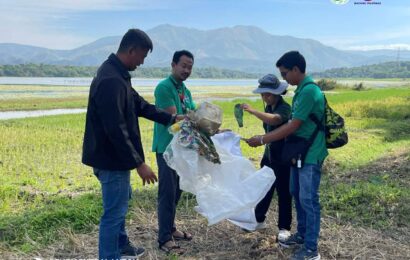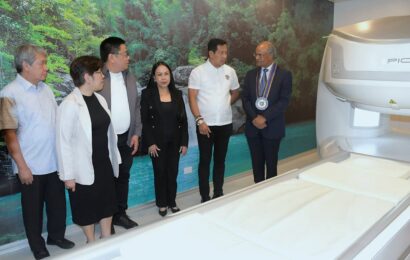
CLARK, Pampanga (PIA) — Department of Trade and Industry (DTI) and Department of Agriculture (DA) signed a Memorandum of Understanding (MOU) with Clark International Airport Corporation (CIAC) on the development of a National Food Hub.
The partnership is part of the farm-to-fork strategy embodied in the Three-Year Food Logistic Action Agenda, which primarily aims to establish food hubs outside Metro Manila to cater fresh farm produce.
DTI Secretary Alfredo Pascual said the MOU will accelerate the government’s efforts to make food available, accessible, and more affordable to the consuming public.
“We express our full commitment to this initiative given our two-pronged objectives to ensure logistics efficiency, and expand food exports,” he pressed.
Under the partnership, DA will be responsible in developing policy framework, public investment, and support services, including sourcing of funds for the establishment or improvement of cold chain facilities and food terminals to expand the logistics network of the National Food Hub.
DTI, on the other hand, will aid in encouraging investments for the construction and management of the facility; as well as promoting market and logistics linkage between producers and institutional buyers.
“This project harnesses the mandate and resources of the three government agencies…Through this, we can can achieve the President’s goal of ensuring food security by empowering farmers and the private sector, as well as strengthening supply chain and logistics systems and infrastructure development,” Pascual said.
For his part, CIAC President Arrey Perez thanked partner agencies for the support in pushing for the success of the project, and vowed that the state firm is working hard to identify key investors, major food conglomerates, and other private sector partners to fast track the project.
“Clark is ideal for the mega food hub because of its expansive space for infrastructure and facilities, and seamless road network connecting north, central and south Luzon to the world-class Clark airport capable of handling cargo and logistics,” he said.
Perez also highlighted that the National Food Hub, in tandem with the CIAC’s six other flagship projects, will be a game-changer for the Philippines’ overall agricultural productivity and the revitalization of the exports sector.
Aside from that, he mentioned that this will also address many other governance issues, such as employment and dispersal of growth to provinces and regions.
Meanwhile, DA Secretary Francisco Laurel said the project is very consistent with the administration’s direction to leverage on the private sectors’ resources to achieve the economies of scale in agricultural production that the country needs.
The National Food Hub will be built in a 64-hectare land inside the Clark Civil Aviation Complex in Pampanga.
Its services will include research and quality control, warehousing, food processing, international shipping, marketing services, and trading for local and foreign markets.
SOURCE: Marie Joy S. Carbungco PIA3





